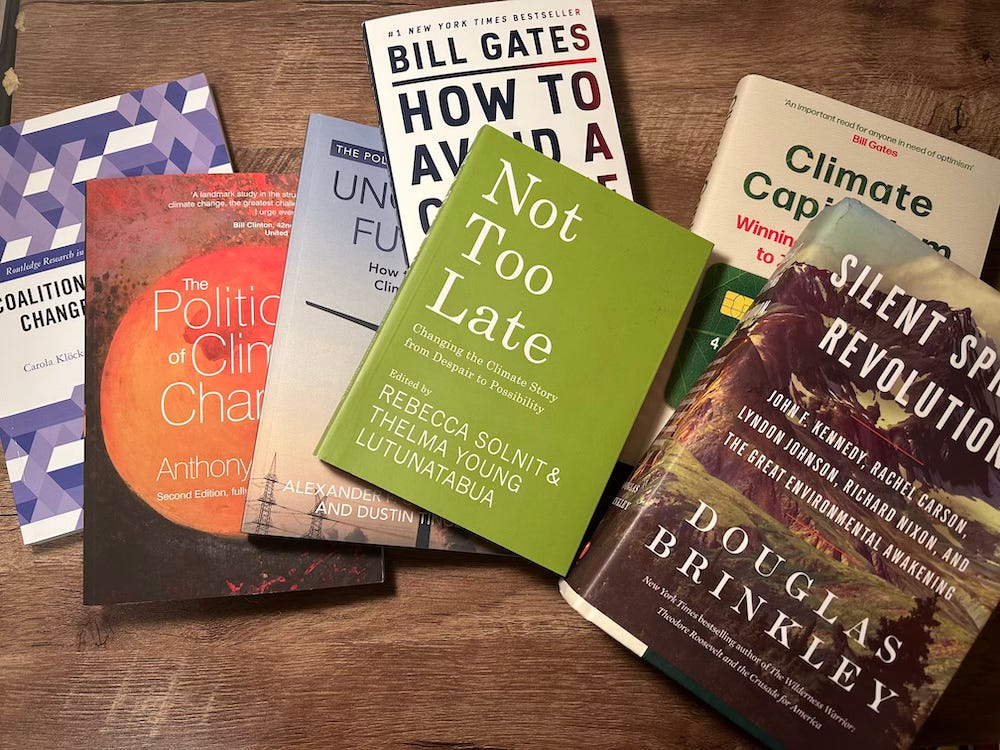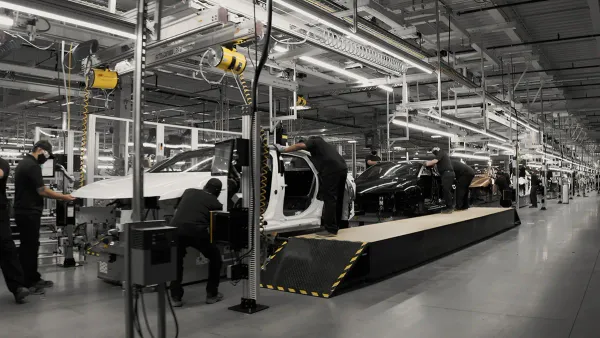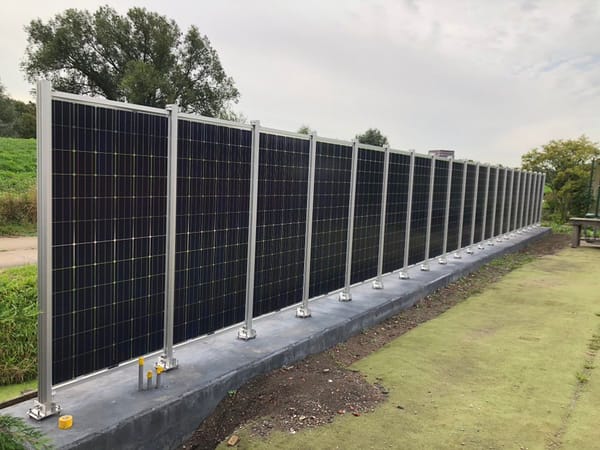Nine books on climate you might consider
Good Afternoon,
As promised, today I’m writing a review of the clutch of climate books I’ve been reading. It’s all grim stuff, since there’s no clear silver bullet solutions and the world has yet to pull together on the issue. Still, there’s lots of good nuggets in the reading.
And, as a reminder, I’m heading out to Dubai for COP28 and plan to send daily newsletters once I arrive on November 30, through the meeting’s conclusion, which should be around December 12.

It seems the real reason someone writes a book about climate change is to tell us what we need to do to fix it. At least, that seems to be the thread running through the nine books I’ve read as I prepare to go to COP28 in Dubai later this month. Climate change books often have other interesting observations on policy, technology trends, or the negotiation process, but those worthy insights take a back seat to one consistent message: “Things will get worse if policymakers don’t do these things.”
Like watching a teen horror movie, we know how the story will go: The protagonist (us) will go into the basement (burn more fossil fuels) and see increased global warming (get killed). So, books about climate tend to be depressing to a certain extent, since the discussion keeps going back to the same things: Spend more government money on boosting technologies, set sharper climate mitigation targets, and wean ourselves off the fossil energy consumption we’ve gotten so comfortable with.
As I moved through my new climate library, I found myself flipping past pages, sometimes entire chapters, because I wasn’t getting a whole lot of new information. That’s not entirely fair to the authors, since sometimes the writing was more artful, or there was a cool anecdote or two. But mostly I was trying to glean something new, something that will help me understand policymaking or something about the negotiations process and why countries make the decisions they do about climate.
It turns out there is a thin library of literature on these topics, which seems funny to me: Doesn’t the bump and grind of nations arguing over how to fix climate include some great stories? Last weekend’s nailbiter of a negotiation session in Abu Dhabi over the Loss and Damages fund featured the American negotiator storming out at the last minute, just as the gavel dropped. How many dozens of times has that happened?
Briefs on the various negotiation sessions exist all over the internet, but these are usually dry, policy-centric treatises, with none of the human struggle – and politicking – that makes any story about disagreement interesting. Key to how human disagreements are worked out, the drama of politics is also the stuff that lights the way to potential solutions. By ignoring the drama and turning everything into a dry science report, we’re missing some of the keys needed to unlock our policy disagreements.
Instead, we mostly get two kinds of books: Climate books written for the general public, written in three acts: One, a breezy review of the science explaining just how dire things are. Two, here are some positive ways governments or companies are addressing climate. Three, if we’re going to really solve climate, we need policymakers to take these recommended steps.
The second kind are academic treatises, heavily footnoted and often blind to the political reality of climate denialism. Every scientist - even the social scientists – begins with the conceit that climate change is real and bad. But few seem to understand that denialism has strength and power impervious to scientific reasoning. So, it seems, scientists just ignore it – to theirs and our peril.
The granddaddy of the general public books is Bill Gates’ 2021 How To Avoid A Climate Disaster. Gates has poured hundreds of millions, if not billions of his own money into solving climate technology problems by founding the Breakthrough Energy Fund, so obviously lots of people want to know how he thinks. It’s a brisk 150 pages that doesn’t pull punches about what’s feasible or not, but also isn’t heavily sourced – he just lays out facts rather than brings in experts – it’s not a journalistic work. Yet, his frankness about the difficulty of the job ahead is refreshing, and there’s less happy talk or positioning himself as someone that’s seen some cool stuff. Maybe the fact that he’s a big deal can go understated, since he is unimpeachably a big deal.
Climate Capitalism by Bloomberg reporter Ashkat Rathi and Five Times Faster by U.K. climate negotiator Simon Sharpe cover a lot of the same ground as Gates, although each are dominated by the authors’ professional backgrounds. For instance, Rathi’s book reads as a series of business magazine articles, packed with stats and personal insights from big-deal businesspeople. It tries to demonstrate that there are good things happening on the climate front, but sometimes leans into uncritical corporate happy talk, since recent reporting, even from his own outlet, has revealed that many private companies aren’t really doing as much on climate as they claim to be.
Sharpe falls into many of the same traps as Rathi, instead listing various local policies (most from the U.K., since that’s where he’s from) that have been successful one way or another. His message is that local and regional governments have press harder to solve climate – something that I’m not sure we need an entire book about. Where Sharpe does get interesting, and I wish he would have written more about, is his experiences with climate negotiations. In particular, he writes about the struggles of COP26 in Glasgow, which the U.K. team led. He details the struggles of getting the Just Energy Transition Partnerships agreement, which haven’t been as successful as hoped, but still an important move forward to putting real money into assisting developing countries go green.
I also dove into more academic literature, looking for a removed insight into the politics of climate. Anthony Giddens’ 2011 The Politics of Climate Change includes a warm book jacket quote from former President Bill Clinton, “I urge everyone to read it.”
Although the book is reportedly one of the most read on the politics of climate, it is remarkable how much has changed in the last twelve years – particular since the 2015 Paris Agreement and especially since the passage of the U.S.’s Inflation Reduction Act and the E.U.’s Green Deal. So much of the book is about how to get funding for green technology and it lacks the urgency that’s increasingly apparent with the last two years’ climate-fueled natural disasters.
Focusing more on U.S. policy, Alexander Gazmararian and Dustin Tingley’s Uncertain Futures: How to Unlock The Climate Impasse attempts to devine how American local and national policymakers can create climate policies that we can stick to, rather than the back-and-forth of successive Democratic and Republican presidential administrations. Their key answer: We need more bi-partisan solutions. Reading through the book, you can feel their frustration that American elected officials aren’t working together to solve climate. While they acknowledge that local interest aren’t always taken into account, they completely ignore the unmovable boulder of climate deniers – of which there are many, at almost every strata of American society. How do we unlock them?
I think I hit the motherlode of negotiations details with Coalitions In The Climate Change Negotiations edited by Carola Klöck et al. This is a negotiations nerd’s book, with a series of scholarly studies by various authors of how various coalitions have grown over time. While I learned a great deal here (and I plan to reread before I head to Dubai), the real lesson the book in whole provides is that developing countries have been gradually learning how to work together to push the U.S. and Europe towards their policy goals. I don’t think Westerners appreciate how much the U.S. and Europe are like Gullivers walking among Lilliputians. Slowly, over time, developing countries have learned how to find common ground and band together their slight diplomatic power to become big enough to take on the Western developed countries. They might end up saving us all.
Many people recommended Not Too Late, a short book of personal accounts from people committed to fixing climate, edited by Rebecca Sonit and Thelma Young Lutunatabua. It’s an easy read and less than 200 pages on small format pages. This is meant to be a bedside book that you read to give you hope before you fall asleep. It’s fun, but uneven and not necessarily enlightening. But maybe that’s the point? “Don’t despair. We work on climate full time and we’re still hard at work, so you can be too,” seems to be the message.
I’m also slowly forging through Douglas Brinkley’s Silent Spring Revolution. Although I’m barely halfway through, i can tell this is meant to be a defining opus, telling the story of how the modern environmental movement was born – and from what I’m getting so far, it built speed logarithmically, which a big surprising crescendo after decades of work. Brinkley’s writing is detailed, unearthing leaders I’d never heard of, who each had a critical part in getting us to where we are today. This is heartening: Just because the climate movement doesn’t seem as forceful today as it should be, a precedent suggests it will be, and maybe soon.
Finally, I have to mention a science fiction book, if only because so many people I’ve talked to in the climate space seem to have read it: Kim Stanley Robinson’s Ministry For The Future. Robinson’s book – which devotes pages and pages on the science and technology of various solutions – is a wishful primer on how the world could solve climate, and how hard it will be once we actually devote ourselves to the problem. Robinson clearly understands the science, but takes a fiction writer’s license to do a certain amount of hand waving over certain intractable social problems. But one of the points of his book is, even after we decide to really do this thing, it’s still going to be a challenge. Somehow though, I found it inspiring.
Other Things Happened
- 2023 Virtually Certain to Be the Hottest Year on Record, Scientists Say
- A U.N. report finds that petrostates (which includes the U.S. and Canada) plan enough new fossil fuel production to blow through the 1.5°C climate target, as well as the 2°C target.
- Although not a petrostate, India is planning to expand its coal consumption.
- Kenya’s carbon offset program, mainly forest protection, is leading to hunter-gatherer groups to be ejected from their forest homes, so the land can be labeled as “conserved”
- The U.S. and China concluded five days of bilateral talks on climate with no public announcements. But, hope endures since both sides called them “positive” and China’s veteran lead negotiator, Xie Zhenhua, who will retire after COP28 and is likely looking to burnish his legacy.
And bringing up the tail end…This 1991 Sizzler promo is so wonderfully dated. I’m pretty such it was dated as soon as it was produced.





